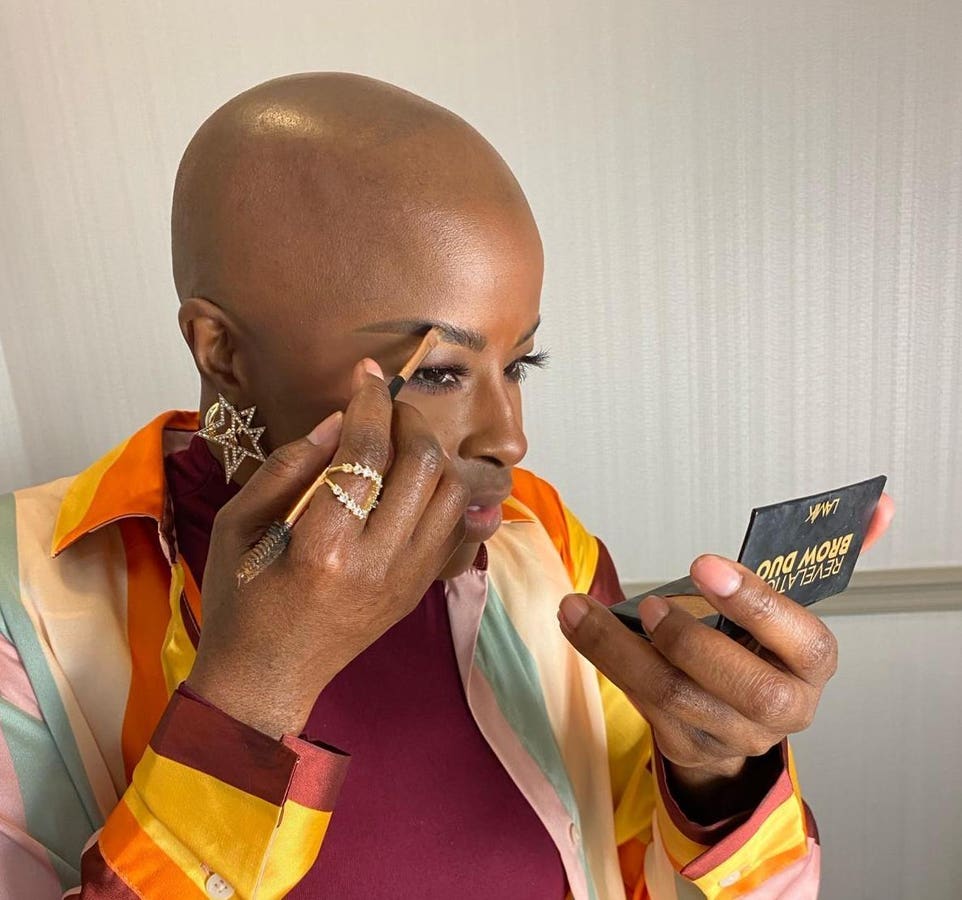LAMIK Beauty, a pioneer in the inclusive beauty movement, exemplifies the transformative power of businesses that prioritize diversity and representation. Founded by Kim Roxie, LAMIK, which stands for Love And Makeup In Kindness, challenges the traditional beauty industry’s narrow standards by offering clean, vegan products designed for women of all shades and skin tones. Roxie’s vision, fueled by a mere $500 investment from her mother, has blossomed into a brand that not only caters to an underserved market but also champions a new era of inclusivity within the broader beauty landscape. This approach aligns perfectly with the changing consumer landscape, where younger generations prioritize diversity and ethical consumption, creating immense market potential for brands that genuinely embrace these values.
The beauty industry, projected to reach $580 billion by 2027, is ripe for disruption. While the premium segment experiences rapid growth, Black-owned brands like LAMIK represent a small fraction of the market share, highlighting a significant disparity. This gap presents both a challenge and an opportunity. LAMIK directly addresses this imbalance by actively catering to a demographic often overlooked by mainstream beauty brands. The brand’s commitment to inclusivity goes beyond product offerings and extends to its core values, resonating with a growing consumer base that demands authenticity and representation. This demand is reflected in the increasing willingness of consumers to support brands that align with their values and boycott those that fail to prioritize diversity and inclusion.
LAMIK’s success is intrinsically linked to its strategic approach, mirroring the strategies employed by other leading beauty brands. This includes forging robust retail partnerships, embracing innovation, and cultivating strong community bonds. Securing a spot as the first Black-owned clean makeup brand on Ulta.com’s digital shelves exemplifies LAMIK’s strategic prowess in leveraging partnerships to expand its reach and accessibility. These collaborations with major retailers like Ulta Beauty, JCPenney, H&M, and HSN amplify LAMIK’s message of inclusivity and expose the brand to a broader consumer base. Furthermore, the brand’s innovative retail concept on Black Wall Street in Tulsa, Oklahoma, underscores its commitment to community engagement and economic empowerment, solidifying its position at the intersection of representation and innovation.
The convergence of inclusivity and sustainability represents another crucial aspect of LAMIK’s business model and a growing trend within the beauty industry. The increasing demand for natural and sustainable beauty products reflects a shift in consumer preferences towards environmentally conscious and ethically sourced ingredients. LAMIK’s commitment to clean, vegan formulations aligns seamlessly with this growing market segment. This dual focus on inclusivity and sustainability resonates with consumers seeking brands that prioritize both social and environmental responsibility. The beauty industry is responding to this demand with increased investments in sustainable packaging and a wider selection of BIPOC-owned brands across major retail platforms.
The financial implications of inclusive beauty are undeniable. Brands that prioritize diversity and inclusivity experience significantly higher growth rates compared to their non-inclusive counterparts. This performance disparity highlights the strong correlation between authentic representation and consumer loyalty, particularly among Black consumers who demonstrate a preference for supporting Black-owned businesses. Despite the demonstrable success of inclusive brands, securing funding remains a persistent challenge. While Black brands often receive smaller median venture rounds, initiatives like the BrainTrust Fund, a $25 million venture fund specifically designed for Black beauty and wellness innovators, offer a glimmer of hope and signal a growing recognition of the untapped potential within this market segment.
The future of the beauty industry hinges on embracing inclusivity and sustainability as core business principles. LAMIK Beauty’s success story serves as a compelling case study for how purpose-driven brands can not only thrive but also reshape the industry landscape. By seamlessly integrating technology, fostering community engagement, and prioritizing ethical sourcing, LAMIK demonstrates the potential for inclusive beauty to be both profitable and impactful. This model challenges the traditional beauty industry’s homogenous approach and paves the way for a more equitable and representative future. Brands that prioritize diversity, authenticity, and sustainability are poised to not just survive but thrive in this evolving market, leaving the established players scrambling to catch up.

